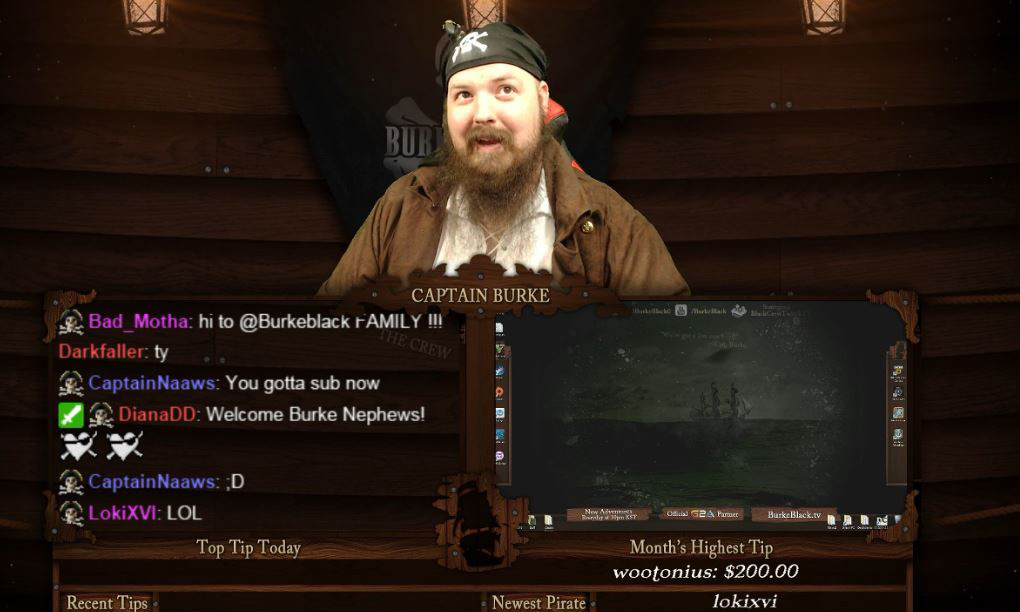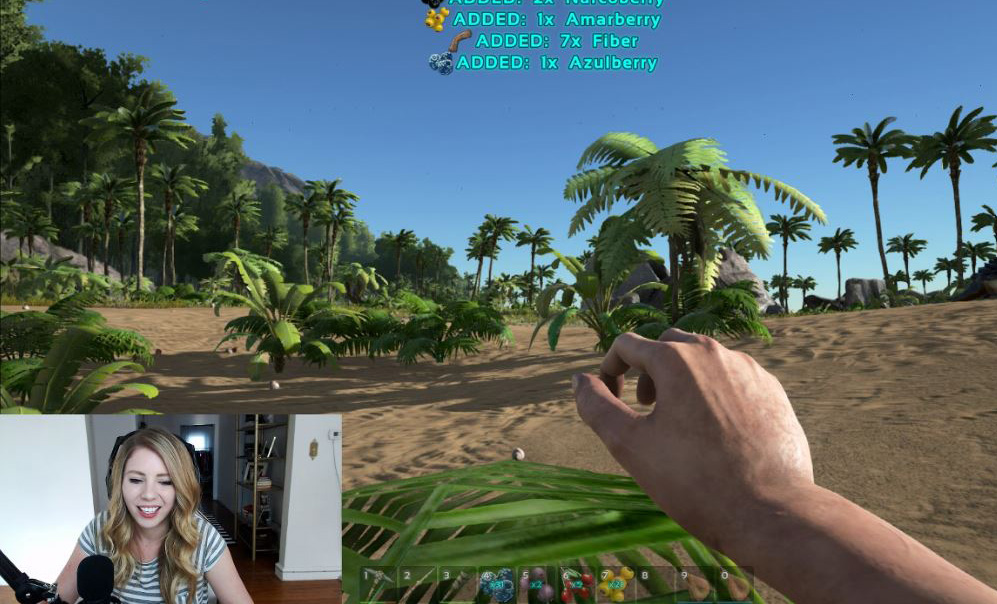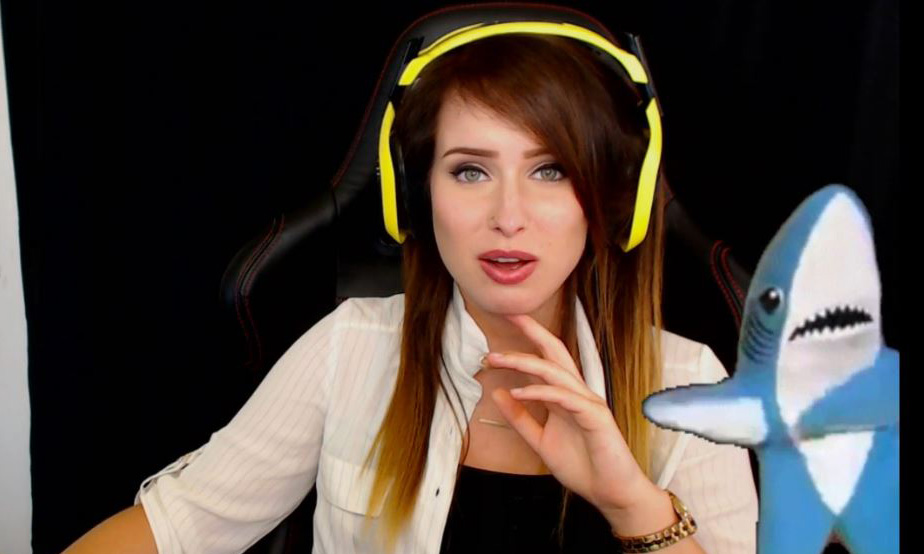Ultimate guide to Twitch: The tips, tricks and gear you need
In recent times, the popular streaming platform Twitch has built a growing community of content creators, who are free to pursue any topic they like. As a result, the website has now attracted over 140 million monthly viewers, with no shortage of what viewers can watch, ranging from gaming, cooking, cosplaying, and even ASMR.
As we’ve learned throughout the ongoing pandemic, the Internet is great at uniting us even when we’re apart. Just like other social media platforms, Twitch has seen its viewership continue to grow in the past several years or so, with over 28 billion hours of streams being broadcasted in just 2020 alone.
However, even with the growing number of viewers, becoming a famous Twitch streamer isn’t as easy as it sounds, especially when you consider the amount of effort and commitment it requires. Of course, there are some lucky streamers that appear to go viral out of nowhere. However, in the vast majority of cases, getting there takes years of hard work and dedication. Some streamers are even able to earn a living out of their Twitch career alone. Even if that’s not your goal, the streaming platform has vast scope to cater to all manner of viewing tastes.
These days, some of the biggest Twitch streamers are practically celebrities, reeling in thousands and even millions of views by playing Apex Legends or sharing their views on a variety of topics. And these streamers have turned their personalities into online personas that rake in some pretty lucrative sponsorship deals.
The good news is that it’s now easier than ever to start your own channel and stream on Twitch yourself. Read on for our ultimate Twitch streaming guide for everything you need to get started, including basic hardware requirements to tips from the pros on keeping your viewers entertained.
Just note that if you’re just starting out as a Twitch streamer, don’t go all out on the fanciest streaming equipment. We recommend testing the waters first to see if streaming is your thing. All you need to start is a computer (PC or laptop), a webcam, and a microphone (though a headset would work just as well).
Twitch guide: What you need
A good computer
Although there are a few exceptions we’ll outline below, you’ll likely be doing most of your streaming from a gaming laptop or gaming desktop PC. As far as technical specs go, Twitch recommends having at least an Intel Core i5-4670 processor (or its AMD equivalent), 8GB of RAM and Windows 7 or newer – don’t worry, you can stream from a Mac, too.
More important than your computer specs is your Internet connection, as you’ll definitely want to stay connected via Ethernet for the best possible bitrate. The faster your Internet connection, the better, so you should probably aim to have an upload speed of at least 3Mbits per second, which should be quite achievable on most home Internet connections.
If you’re looking to stream PC games, you’ll need a graphics card that’s strong enough to support the streaming software and whatever game you’re planning on playing. While we recommend streaming from a desktop if possible, going live from a laptop is absolutely doable, provided you have the specs necessary. If you opt for a laptop, keep in mind that you may experience some issues with overheating since components are positioned much close to each other than they would be on a desktop PC. To minimize your temperatures peaking, we recommend closing any background apps while you’re streaming.
…or just your phone
If you want to stream yourself cooking, playing music or simply hanging out (Twitch has a popular “IRL” (In Real Life) category full of people doing just that), you don’t need any fancy gear – your phone will do just fine! The Twitch app for iOS and Android allow you to stream directly to the platform, which is a good way to do non-gaming streams or to test the waters before diving in.
One PC or two?
While Twitch’s core system requirements are fairly forgiving, streaming and playing graphically intense games at the same time can put quite the strain on your computer. Some of the most popular streamers remedy this by using two PCs at once — one for gaming and another for broadcasting. If that sounds too complicated, you can check out desktops such as CyberPower’s Pro Streamer, which houses two complete PCs in a single body.
Fortunately, thanks to recent strides made by Nvidia, creating a high-quality stream from a single PC is becoming entirely feasible. If you own a gaming desktop or laptop with one of Nvidia’s new RTX graphics cards, you’ll be able to take advantage of Nvidia’s dedicated hardware encoder that’s built into each card. This essentially relieves your CPU from having to do too much of the heavy lifting.
Open Broadcaster Software, which we’ll touch on below, is also optimized for newer Nvidia cards, meaning that it’s quite easy to get a smooth single-PC stream going so long as you’ve got OBS as well as a system with an RTX 2060, 2070, 2080, 2080 Ti, 3060, 3070, 3080, 3080 Ti or 3090 GPU.
However, keep in mind – if you’re just starting, there’s no need to go all out on expensive equipment before you know that streaming is definitely something that you want to pursue long-term.
A Twitch account
Joining Twitch is completely free. All you have to do is go over to Twitch.tv, enter your details and personalize your profile image, banner and description. The latter is extremely important since this would be the first thing that people can see whenever you’re offline. Make sure to make it short and sweet so that your viewers can learn a thing or two about you and what you stream.
If you want to make sure that all of your broadcasts are temporarily archived for later viewing, you can head to Settings > Channel & Videos > Archive Broadcasts.
Streaming software
The most essential part of any streamer’s tool kit is the broadcasting software that allows you to share your stream with the world. The two most commonly-used programs are Open Broadcasting Software (OBS), which is completely free, and XSplit, which has a free version but requires a paid subscription in order to use its key features. I’m personally a fan of the more premium Streamlabs OBS and its more intuitive user interface, but to each their own.
Regardless of your choice of software, setting up your stream generally consists of the same several steps: picking your sources (such as your computer monitor, gameplay feed or webcam), laying out how they’ll all appear to your viewers, and finally, linking your Twitch account and going live.
Twitch also has its own streaming software dubbed Twitch Studio. Currently available in beta, Twitch Studio is built to be an all-in-one streaming that, like OBS and XSplit, lets you create multiple scenes with different video and audio sources, while also providing a variety of built-in layouts and on-screen notification options.
Microphone and camera
While you can technically get by with a decent gaming headset, you may want to invest in one of the best microphones to ensure that your viewers can hear you clearly. The Blue Yeti and the HyperX Quadcast S are some of our favorite USB mics, thanks to their crisp audio quality and adjustable pickup modes. If you’re on a tight budget, consider the $36 Samson Go Mic; for something more portable, check out the $99 Blue Yeti Nano.
You’ll also want one of the best webcams so that your viewers can see you clearly (that is if you will be using one). The Logitech HD Pro C920 is our top overall pick thanks to its sharp 1080p capture quality and wide field of view. If you want something higher-end, the Logitech StreamCam offers 1080p and 60 fps capture while also touting the ability to work in portrait mode for mobile-friendly video. There’s also the $199 Razer Kiyo Pro, which delivers crisp visuals at up to 60 FPS 1080p while also offering HDR capabilities.
Again, there’s no need to invest a ton if you’re just starting out, start with the basic equipment and work your way up as you go.
Streaming from consoles
If you’re wondering how to become a Twitch streamer without any fancy PC hardware, Xbox One, PS4, Xbox Series X, Xbox Series S and PS5 let you stream directly from your console without any extra devices or software. On Xbox consoles, you’ll just need the free Twitch app. For PlayStation consoles, you can go live right from the system’s Share menu. While you won’t get to customize your stream the way you would from your PC, console streaming is still a great way to start out.
If you want to stream from your Nintendo Switch or any other console (or just want more control over your broadcast), you’ll need a capture card that records your console gameplay through your PC. One of the most popular capture card options out there is the $179 Elgato HD60 S, which seamlessly records and streams 1080p, 60fps video from Xbox One, PS4, Xbox Series X & S, PS5, and Nintendo Switch and just about any other system with an HDMI output.
Twitch guide: Quick tutorials
Whether you need a step-by-step breakdown of how to get your stream up and running on a specific platform or just want to get the most out of Twitch as a viewer, check out our handy list of tutorials.
Tips from Twitch’s biggest stars

Twitch is home to a growing population of bona fide gaming celebrities who make their living broadcasting — but not just because they play the latest games or have a fancy stream setup. The top Twitch streamers are true entertainers; some are known for their incredible Call of Duty headshots, while others are famous for blowing through entire Mario games at record-breaking speeds. But more than that, they’re just great personalities.
“[Our top streamers] are humble, friendly, highly interactive and treat the people in their chat as if they are the stars of the show,” said Chase, Twitch’s director of public relations.
If you’re looking to get into the finer points of growing an audience, popular Hearthstone player Jeffrey “Trump” Shih’s “Streaming 101” video is an excellent place to start. Shih neatly breaks down the core components of streaming into an acronym he calls OPTICS (Opportunity, Presence, Technology, Interaction, Consistency and Skill), noting that focusing on any number of these factors could help you make a name for yourself.
Grow big enough on Twitch, and you just might be offered a partnership, which allows you to get a cut of broadcast revenue and offer your viewers exclusive perks in exchange for a monthly subscription fee. No matter what level of Twitch stardom you’re shooting for, here are tips from some of the streamers who do it best.
Find your niche
How do you stand out among Twitch’s 9 million global streamers? For BurkeBlack, all it took was a pirate hat and lots of patience. After two years of steady streaming, Black is now a partnered broadcaster with more than 288,000 followers that tune in to catch his late-night, swashbuckling-themed antics.

Fire up any of Black’s broadcasts, and you’ll see him in full brown-and-beige pirate garb, complete with a skull-and-crossbones bandana and an epic beard to match. The 36-year-old is the farthest thing from imposing, though, as he giggles and cheers his way through anything from Grand Theft Auto V to Pirates! (naturally) while enthusiastically chatting with his viewers.
“I consider it a show, not just some dude streaming games,” Black said. “People come in because they like the atmosphere … [it’s a] nice friendly environment where they can come and have a good time with some cheesy pirate stuff going on.”
Becoming a pirate isn’t the only way to stand out on Twitch. Perhaps you’re exceptionally skilled at the world’s most obscure platformer, or you have a really cute dog you can put in front of the camera while you blast through Counter-Strike matches. Find your specialty, and run with it.
Be consistent
Consistency is crucial — just as people tune in to their favorite TV shows at the same time every night, they should know exactly when you’ll be live on Twitch. Whether you broadcast in the afternoon or the wee hours of the morning, stick to your schedule, and make sure it’s prominently displayed across both your Twitch page and social media sites.
Make some friends
Sonja “OMGitsfirefoxx” Reid is one of Twitch’s biggest stars, with more than 744,000 followers and her own merchandise store. While much of her success can be attributed to her unfiltered sense of humor and constant interaction with her viewers, one of her biggest breaks came from working with others.
“We started a daily Minecraft stream, with the idea of just playing some Minecraft with friends and hanging out,” said Reid of “Mianite,” a series in which she and other popular Twitch stars broadcast their daily hijinks in the popular crafting game. “It blew up, and turned into a huge series, which is going into its third season.”

Be interactive with your viewers
What sets Twitch streams apart from other forms of entertainment is that the audience is almost always a key part of the experience. All Twitch broadcasts are accompanied by a chat room, which allows streamers to interact directly with the people who tune in. The more you make your viewers feel like they’re sitting on the couch with you while you play, the better chance you have at building a loyal following.
Reid affectionately refers to her fans as her “foxx family.” Even with hundreds of thousands of followers, she makes sure to keep things personal.

“I get to know a lot of my [viewers], and remember what’s going on in their lives and chat with them about it on-stream,” she said. “Having a community that really feels like a family is really important to me.”
Audience interaction is a top priority for Black, who has a monitor dedicated solely to viewing his Twitch chat. Black also does frequent giveaways, which, according to the streamer, helps encourage fans to come back every night.
Don’t stress out about your gear
Just because your favorite streamer has a super-sharp webcam and a fancy green screen and streams from two high-end PCs at once doesn’t mean you have to — at least at first. Twitch’s system requirements are quite lenient, which means you should focus on growing an audience before you spend thousands turning your bedroom into an all-out studio.
“I started streaming on an old HP laptop that overheated to the point of burning my hand, and an old foldout chair from Walmart,” said Reid, who’s been able to upgrade to a decidedly better setup as her channel grew.
Be patient and make sure to have fun!
As with any type of success, “making it” on Twitch takes lots of patience and hard work.
“If you’re doing [this] just to make money, you’ll usually fizzle out in the first three or so months,” Black said. “For the first six months, it was just awful because I didn’t know what I was doing. Try not to get discouraged, because everyone’s been that way.”

Black’s patience is now paying off; the streamer is closing in on 300,000 followers, and his Twitter feed is full of pictures of loyal fans wearing T-shirts with his name on them.
Reid stressed the importance of relishing every viewer, no matter how few there are in the beginning.
“Even if you have three viewers, or 30 or 300, there are people that are choosing to hang out and watch you,” Reid noted.
In the end, it’s important to remember that we’re all still playing video games. Whether it’s a hobby or something you hope to make into a career, streaming should be fun — the more you enjoy yourself, the more everyone watching you probably will, too.
For all the latest Technology News Click Here
For the latest news and updates, follow us on Google News.
